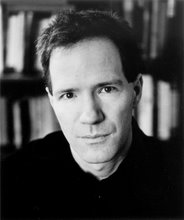I like the revolution that took place in short fiction under the influence of Chekhov (and, to some extent, Babel), the so-called "slice of life" model of the story, in which it was no longer considered "realistic" to have endings as neat and tidy as you might find in, say, Maupassant. Life is not tidy. Thus I would quarrel with the words "real ending" in the question above, because I think it is the "real ending" that is precisely "unreal" and artificial.
Inscription à :
Publier les commentaires (Atom)


Aucun commentaire:
Enregistrer un commentaire